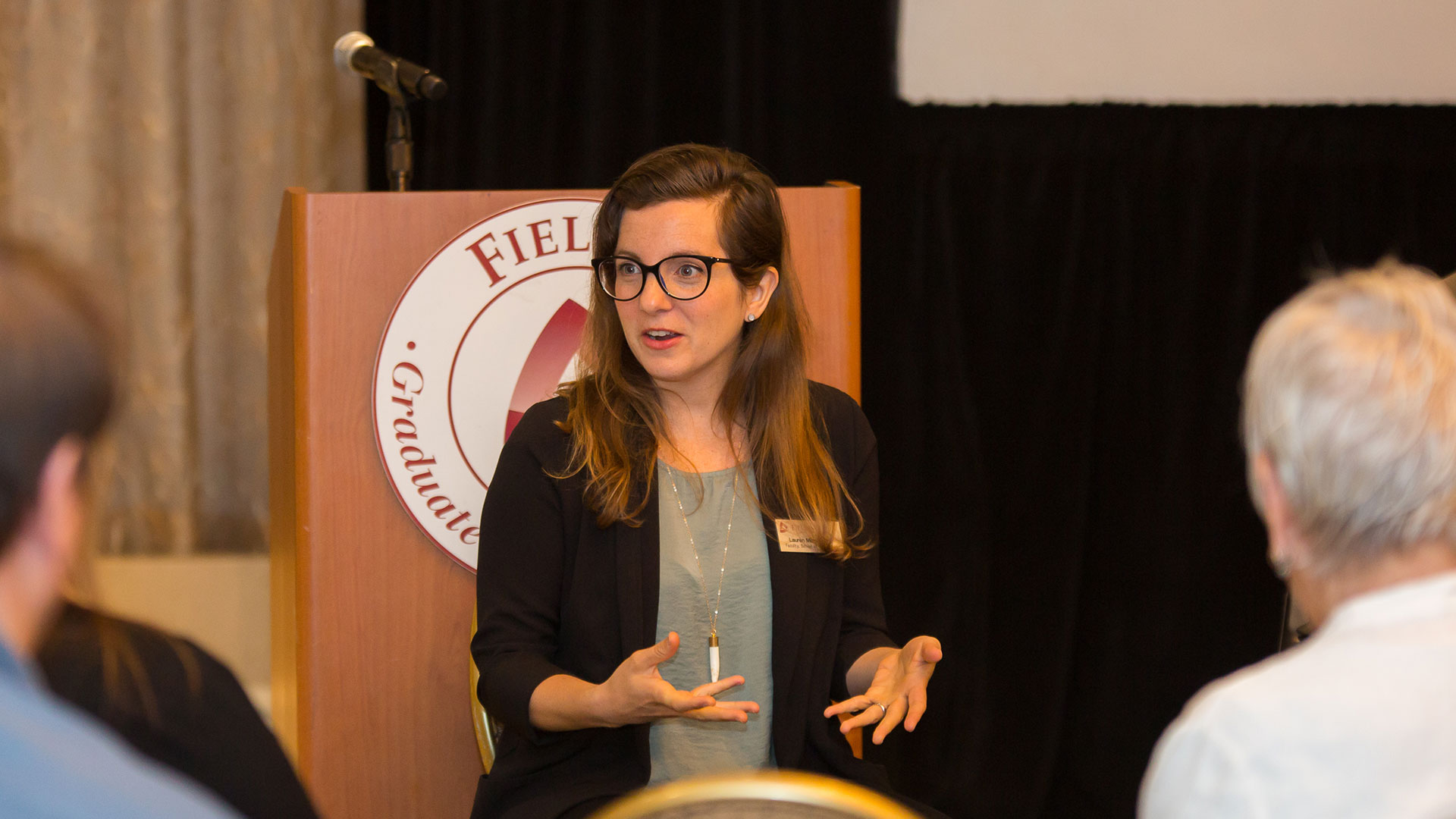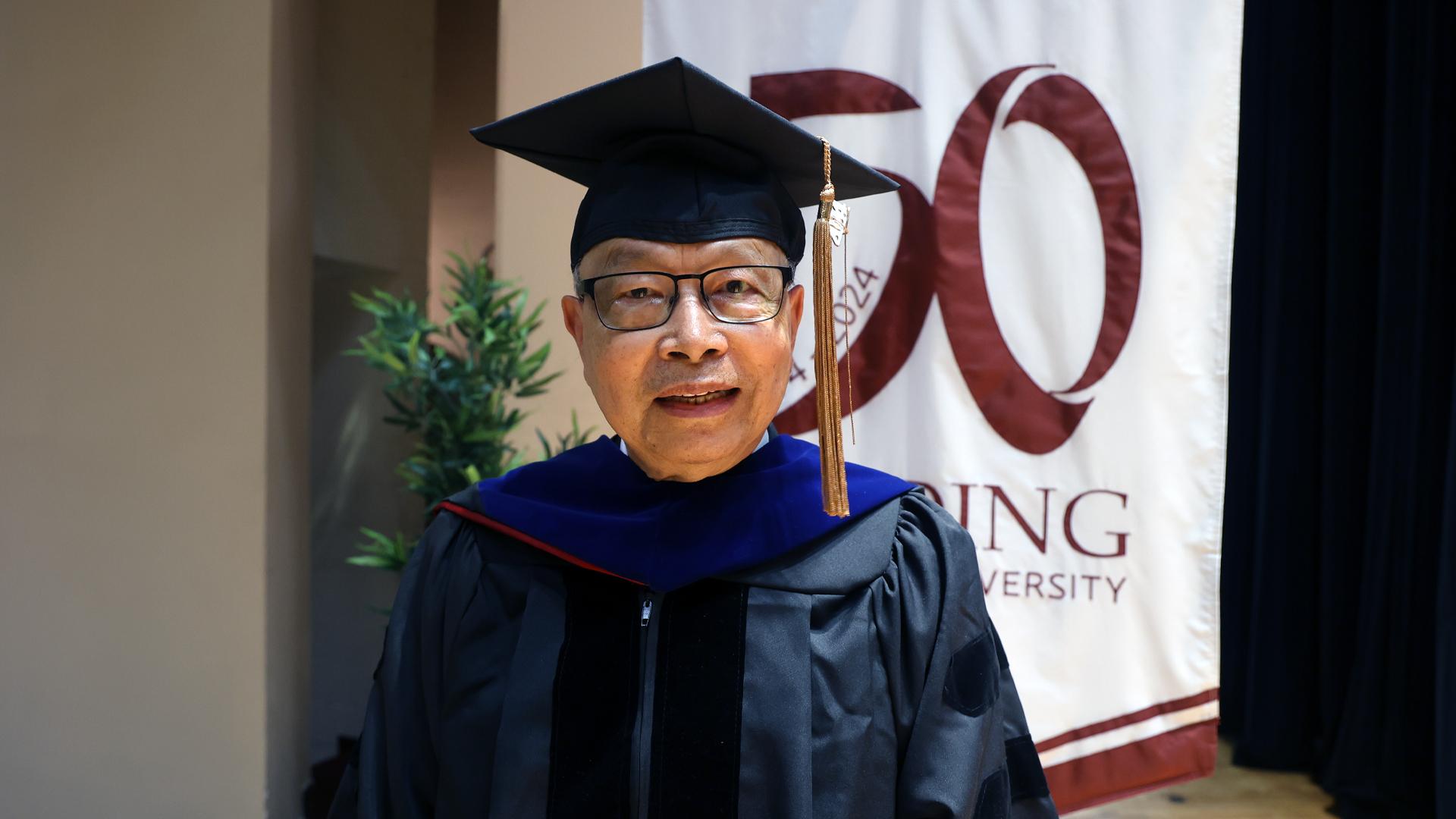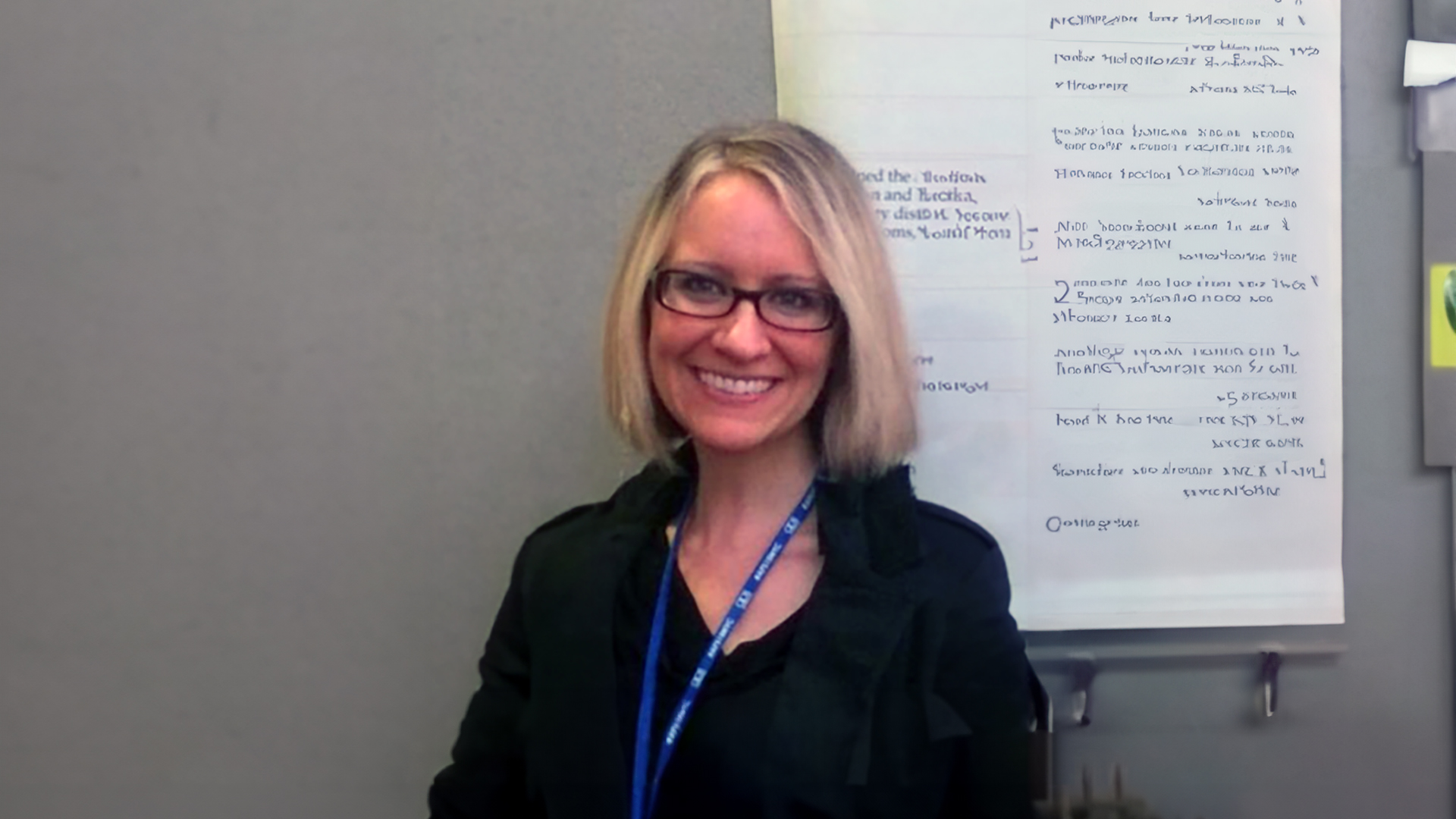Students, faculty, and friends of Fielding got a behind-the-scenes view of Hollywood—in more ways than one—when filmmaker Sean Baker screened his critically acclaimed film “Tangerine” at Winter Session last week.
Shot on an iPhone and described by the New York Times as “tough yet tender, gritty yet gorgeous,” the Independent film depicts a day in the life of two transgender prostitutes in Hollywood. It was presented by Fielding’s Alonso Center for Psychodynamic Studies, whose director Sam Osherson saw the film last year and was moved by it.
“It portrayed the lives of people who are marginalized in a way I had never seen before,” says Osherson, a Clinical Psychology faculty member who wanted Fielding students to have the opportunity to explore how they can capture human experience in a way that feels real and honest. “I’m always trying to deepen our understanding of what it means to be human and to help our students think about the people we’re working with as human beings with rich stories to tell. Sean Baker has a way of telling that story. It’s not a sentimental perspective, it’s very real.
”Relationships are at the heart of good therapy,” Osherson continues, “and this is about helping us look at a person as a personrather than as a diagnostic category.”

Filmmaker Sean Baker
After the screening, writer and director Baker answered questions from the audience, which included the Fielding community as well as Santa Barbara therapists, LGBTQ advocates, and students from UC Santa Barbara.
Baker explained that he lives near the Los Angeles neighborhood where the film is set, and wanted to explore its denizens and microcultures on the screen. But rather than create a script and impose it on the place, he spent time hanging out, earning the trust of the locals, getting to know their stories, and seeking their help in developing a story loosely based around their real lives.

The film’s stars—not professional actors but the real sex workers whom Baker met in the neighborhood—brought a levity and humor to the film, even when it touched on dark subjects from infidelity to addiction.
“Ultimately, we made a comedy,” Baker said, “but underneath the humor there’s a sadness—a sad state of affairs.”
Jennifer Tyburczy, assistant professor of Feminist Studies at UCSB and director of the LGBTQ minor there, brought students to the event from her own Trans-Art class, who are in the process of making their own films.
“The talkback with Baker allowed students to imagine themselves in the roles of director, auteur, and artist,” she says, “and empowered them to think with and through the existing representations of trans experience.”
Tyrone Dixon, a Fielding student who graduated with a PhD in Media Psychology last week and is a filmmaker himself, appreciated the perspective that “Tangerine” offered.
“I thought it was a bold and courageous film,” he said. “The filmmakers did a great job of sharing that world.”
Join Over 7,500 Fielding Alumni Located Around The World!
Change the world. Start with yours.™






Get Social